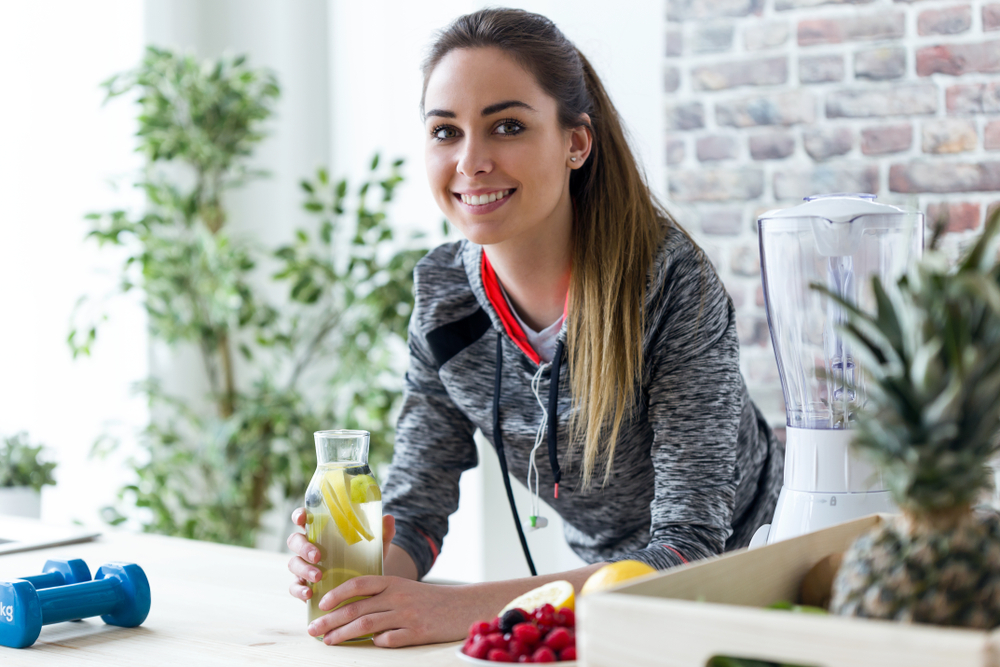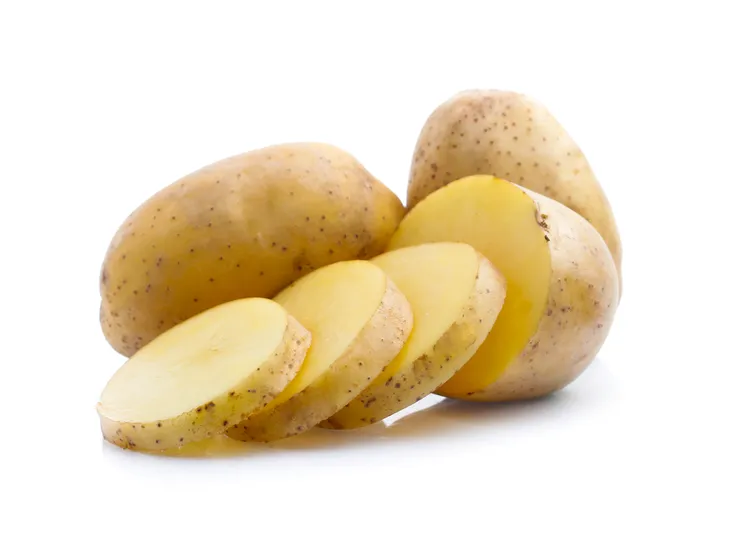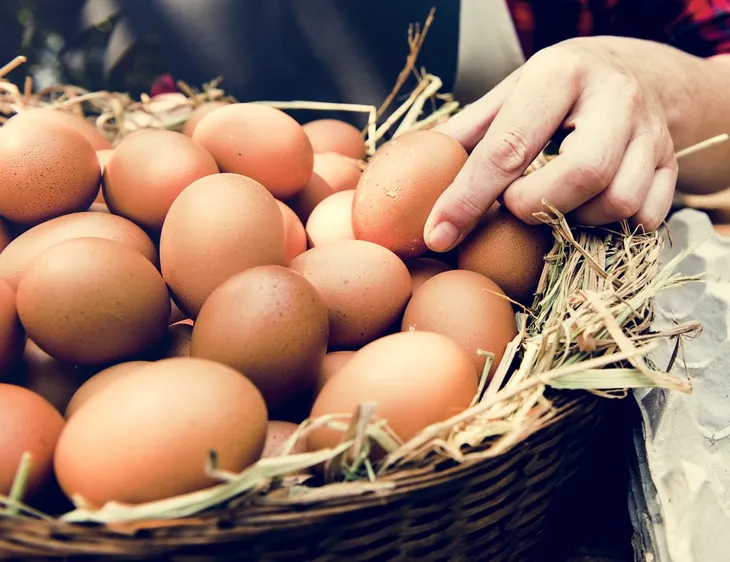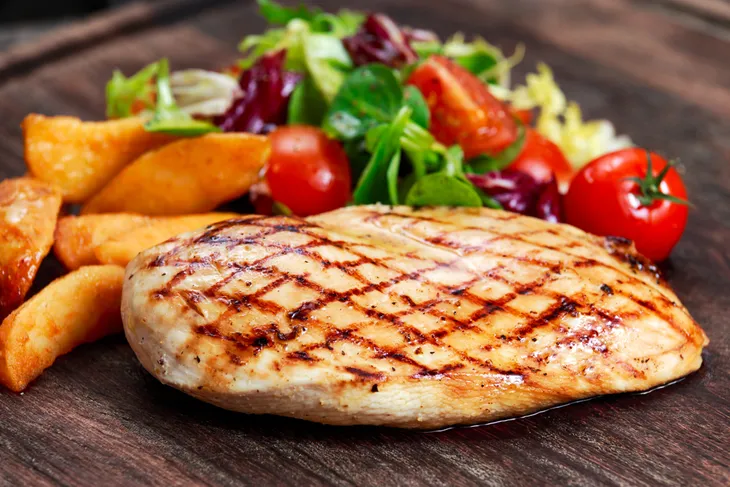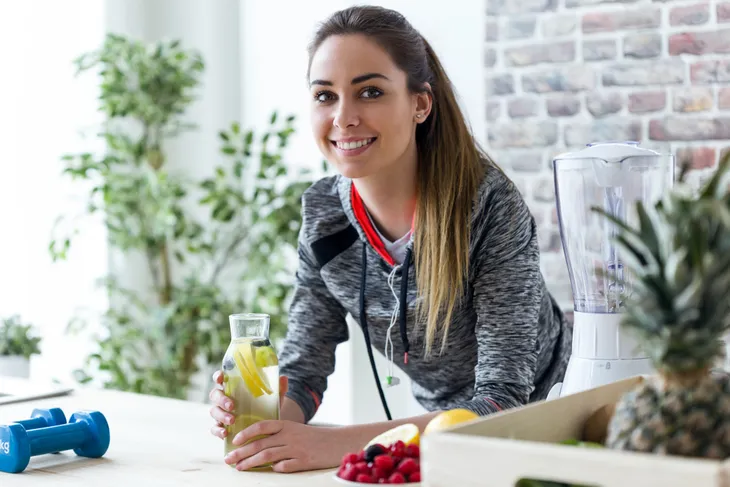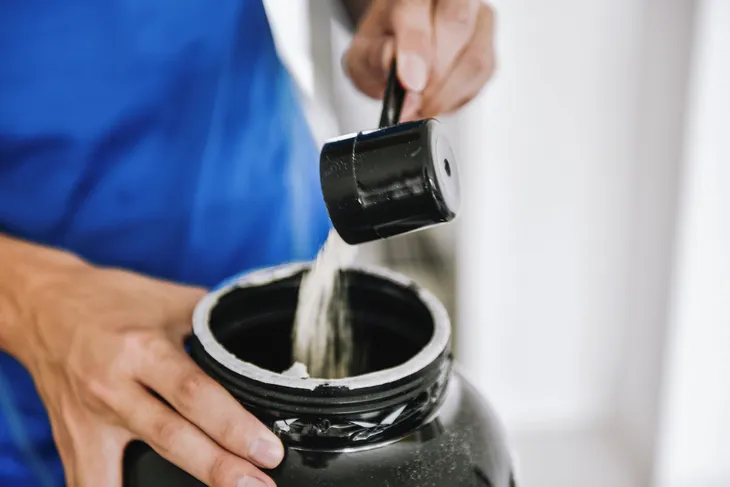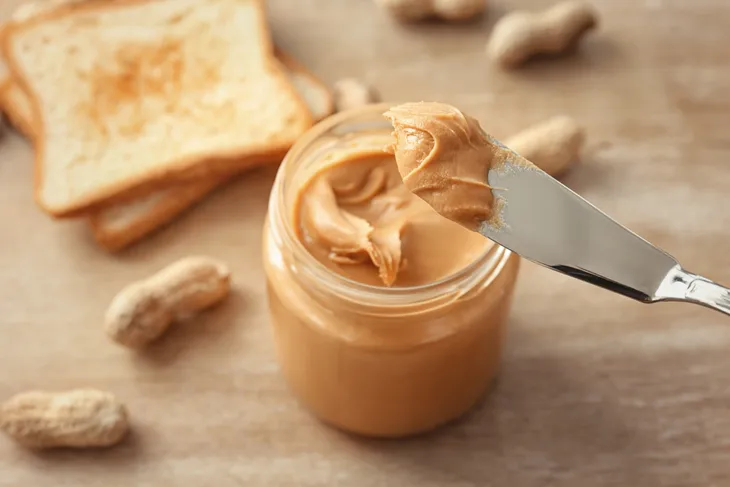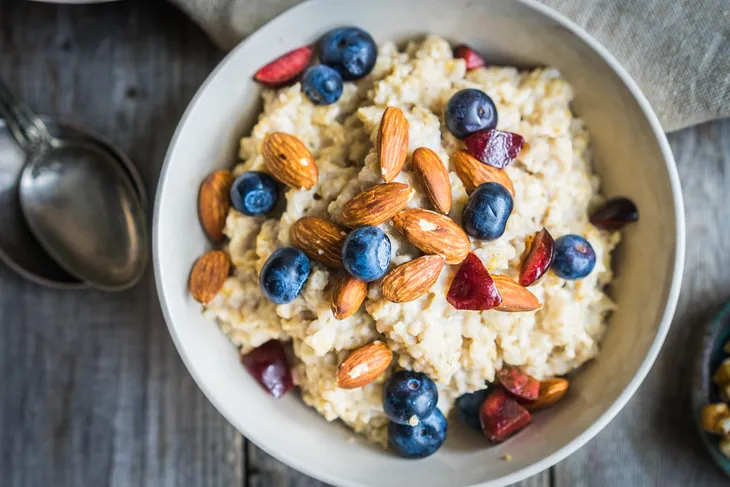Generally speaking, you want to eat something light and healthy — such as a yogurt, piece of fruit, or energy bar — prior to getting your workout on. That way you’ll have the energy to power through your workout without getting bogged down by the digestive issues that might accompany a heavier meal.
But what should you eat after your workout? In a lot of ways, that depends on the type of workout you enjoyed in addition to your fitness goals. If it was a fat-burning workout and your goal is to lose weight, you may want to focus on lean proteins and complex carbohydrates. The foods are similar if you had a strength-oriented workout with slightly more emphasis on protein (a protein shake is a good idea, for example). But what foods, more specifically, should you be eating after a workout?
Potatoes
If you’ve just finished a workout designed to burn as many calories as possible — in essence, a high-intensity cardiovascular workout — then you’ll want to restore much of the glycogen spent by your body. That means consuming carbohydrates, and there are few better carbs for this purpose than potatoes.
The good news is that potatoes are cheap, easy to find, and incredibly easy to prepare. Try boiling some potatoes before tossing them in garlic powder and salt and serving them alongside egg whites. Or, if your workout was a little later in the day, use tinfoil to wrap some potatoes with extra virgin olive oil and rosemary and bake in the oven or barbeque.
Eggs
Eggs are one of the most popular post-workout foods, for a number of reasons. For one, they’re extremely cheap — in fact, in a lot of places their cost is subsidized, meaning you pay market value for them. On top of that, they’re very easy to prepare; in fact, most young chefs learn to perfect the omelet before moving on to preparing any other dish.
Eggs are great for eating after a workout because they’re packed with protein and good fats that your body desperately wants shortly after expending a lot of energy. If you’re determined to lose weight, you can cut the fat and cholesterol out by purchasing egg whites, which have all the protein but none of the yolk.
Chicken Breast
One of the healthiest sources of protein is skinless, boneless chicken breast, which can be found at just about any grocery store. With the skin gone and bone removed, this is easily the lowest fat cut of poultry. Of course, it’s important to keep health in mind when preparing your chicken — rather than frying in heavy oil, try baking your chicken after rubbing some salt and other spices in to give it flavor. If you simply must fry the chicken, lightly spray a pan rather than filling it with oil.
Great pairings for your chicken breast include boiled potatoes and an extra-large side of vegetables, like broccoli. If you’re set on going ultra-healthy, consider boiling the chicken, too.
Salmon
Fish is often an excellent food choice, but it’s especially smart to eat it after a workout. That’s because salmon is relatively light, full of protein, and contains healthy fats known as omega-3 fatty acids, which have been shown to help improve heart and brain functionality.
Salmon is also relatively easy to acquire and even easier to prepare. Just spray a pan with a little extra virgin olive oil, add the salmon, and flavor with salt and citrus juice. Or, you could add some fresh dill to give it a unique flavor. Pair with brown rice and steamed vegetables for the ultimate post-workout meal.
Water
It sounds so simple, but drinking water is incredibly important following a workout, particularly the more intense sessions. That’s because our bodies can shed ounces upon ounces of water in sweat as we exercise and, if we fail to replace it, we can make it harder for our bodies to bounce back and prepare for the next workout. Additionally, failing to replace lost water can make you feel tired, sore, and generally lethargic in the hours after you stop exercising.
On the same note, avoid drinking diuretics after your workout, like anything with caffeine, including coffee, tea, or cola. Focus on water or beverages with relatively little sugar, such as milk and no-sugar-added juice.
Protein Powder
A lot of health experts recommend you consume a full but light and healthy meal — such as salmon with brown rice and salad — following a workout. But sometimes we just don’t have the time or appetite for preparing a larger meal, even one as quick as salmon, rice, and vegetables.
If that’s the case, don’t hesitate to reach for a protein powder, such as whey protein. Throw a spoonful in a glass of milk or water and drink it down. Because many whey protein powders contain carbohydrates in addition to protein, they’ll start the process of helping your muscles recover and get ready for the next workout. Additionally, a protein powder drink can help settle the stomach after a particularly grueling workout session.
Peanut Butter
Many people who exercise regularly are looking to trim weight or maintain their body’s current form. For those people, the best post-workout snacks or meals will involve lean protein, a few carbohydrates (but not too many), and fruits and vegetables.
But what if you’re looking to put on weight, and specifically muscle mass? That’s where peanut butter comes in. As a relatively healthy source of good fats and protein, it’s a great choice for anyone interested in bulking up. It’s also extremely easy to consume — add a spoonful to your favorite protein shake, spread it on some whole grain toast, or just spoon it out of the jar and into your mouth. For reference, a spoonful of peanut butter is generally only 1 to 2-tablespoons.
Oatmeal
If you’re an early morning workout person, then many of your post-workout meals will involve traditional breakfast foods like cereal, eggs, and smoothies. And while all of those foods are great to eat following a tough workout, you might also consider making yourself a bowl of oatmeal as a post-exercise snack.
That’s because oatmeal is a complex carbohydrate that, after consumed, takes several hours to break down in the body, meaning it will keep you feeling full and energized for longer than many other foods. Additionally, oatmeal contains protein and carbohydrates, which our bodies crave following a particularly intense workout.
